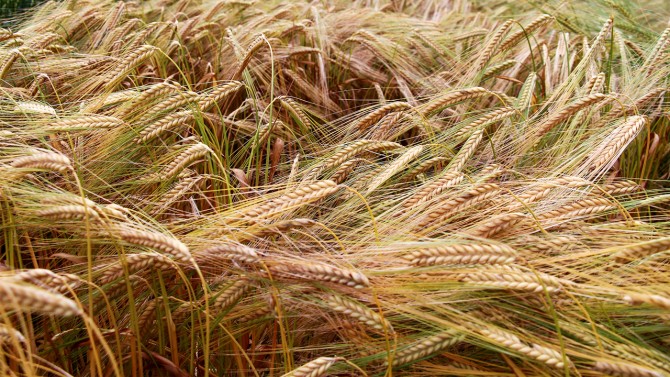LakeEffect, the first winter malting barley released by the Cornell Small Grains Breeding Program, is set to take the New York craft beverage industry by storm. The new variety produces high yields, is disease resistant and has a good malting profile, researchers said.
"We're excited about LakeEffect because it couples the agronomic performance farmers want with the superior malting qualities brewers and distillers prefer," said Mark Sorrells, professor of plant breeding and genetics in Cornell's School of Integrative Plant Science (SIPS) in the College of Agriculture and Life Sciences, who led the breeding effort.
"What's truly remarkable is that we took this from first cross to commercial release in just seven years, which is incredibly fast to move a new variety to market," he added. Seed for the first commercial LakeEffect crops will be available in summer 2026 for fall planting.
LakeEffect barley produces higher grain yields than either of its parents and is resistant to disease.
LakeEffect produces higher grain yields than either of its parents, SY Tepee and Lightning - two winter barleys with a proven track record - but where it really shines is in its resistance to diseases, which can be serious in the often wet and humid conditions faced by New York barley growers, said Gary Bergstrom, SIPS emeritus professor of plant pathology (CALS).
"Among available varieties, LakeEffect has the highest level of resistance to Fusarium head blight and its associated contamination of grain by the fungal toxin DON," he said. "It also resists scald and powdery mildew - two common leaf diseases that often reduce barley yields in New York."
In addition to the characteristics that benefit growers, LakeEffect has the malting profile that brewers and distillers want, said Siim Sepp, a doctoral student in the Sorrells Lab who has continued analyses started by former graduate student Karl Kunze.
"It offers strong malt extract potential, high kernel weight, low beta-glucan levels and well-balanced protein levels: all key attributes for quality brewing and distilling," Sepp said. "It hits all the marks for malting quality and performance in the field."
David Benscher, a research support specialist in the Sorrells Lab, conducted on-farm tests across the state for several years. "We're confident it is well-suited to different regions in New York," he said.
Benscher expects to harvest about 100 bushels of foundation seed from Cornell fields this summer. That seed will be planted by certified growers this fall for harvest next summer that farmers can then purchase and plant for the first commercial LakeEffect crops in 2026.







